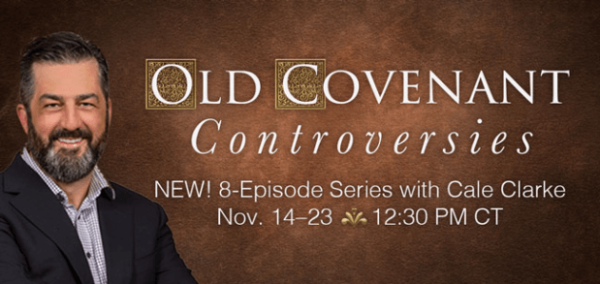Is the Old Testament part of Salvation History or salvation fiction? As most scholars will agree, the New Testament is a well-documented, well-proven period of history. It’s much closer to modern history, and historians were far more active in that time period than in the Old Testament. Everyone knows that Jesus was a real person, that he was born in Bethlehem, lived in Nazareth, and died at the hands of Pontius Pilate and the Hebrew authorities. But how much do we really know about Noah, Abraham, and Isaac? Is it possible that all of the Old Testament is simply a series of fictional stories? What effect would that have on Catholic teaching?
To answer these questions, Cale Clarke began his second topic of Old Covenant Controversies on The Faith Explained: the historical accuracy of the Old Testament.
Cale began the conversation by talking about two different types of Old Testament scholars: the maximalists and the minimalists. These two groups viewed sacred scripture through two very different lenses. About half a century ago, most scholars attended the school of thought of the maximalists, and they operated under the assumption that the Bible was the Word of God and that whatever it said about Israel’s history could be taken as truth. After all, the biblical writers would not lead us astray.
But then a new generation of scholars began to emerge. They became known as minimalists, and they believed that very little about what the Bible had to say about Israel’s history could be trusted. From a purely analytical standpoint, there is simply less evidence that the events of the Old Testament are true. The minimalists believe that you must subject the Bible to the same kind of scrutiny as any other historical work, regardless of the fact that it is the Word of God. And to any secular parties on the outside looking in, they would be correct.
Some minimalists are purely secular skeptics who believe that the Old Testament was a series of stories devised by the Israelites to lay claim to the land around them. But some minimalists are believers. They just don’t think it matters whether or not the Old Testament is true. They think that the Bible doesn’t have to be historically true to validate the New Testament or to convey some theological message or meaning.
“I think there’s a huge problem with that theory,” said Cale. “We Catholics believe in something called ‘Salvation History’; that God, who created all things, who created the world, can act in His world to bring about His purposes. We are not deists, like so many of the founding fathers of the United States, who believed that God was some sort of ‘cosmic watchmaker’ who just created the universe, wound it up, and then let it go.”
Our God is one who acted (and continues to act) in history to establish His people, guide them, and ultimately save them through the person of Jesus Christ. Without the truth of the Old Testament, we lose a vast amount of meaning in the New Testament because there is no fulfillment of scripture. There is no foreshadowing. What covenant is Jesus fulfilling by redeeming us? If the Old Testament is inaccurate or false, then why include the centuries of slavery, the dark times of Israel, and all of the times God’s people disobeyed Him? Because it’s the whole story. It’s a comprehensive look at the Israelites’ journey out of darkness and into the Promised Land. Their journey is a precursor to our own. We must escape the slavery of our sins and allow God to redeem us.
Listen to this full episode of Old Covenant Controversies above or on The Faith Explained show page! And be sure to catch the rest of the episodes live on Relevant Radio at 12:30pm CT from November 14 – November 23!

